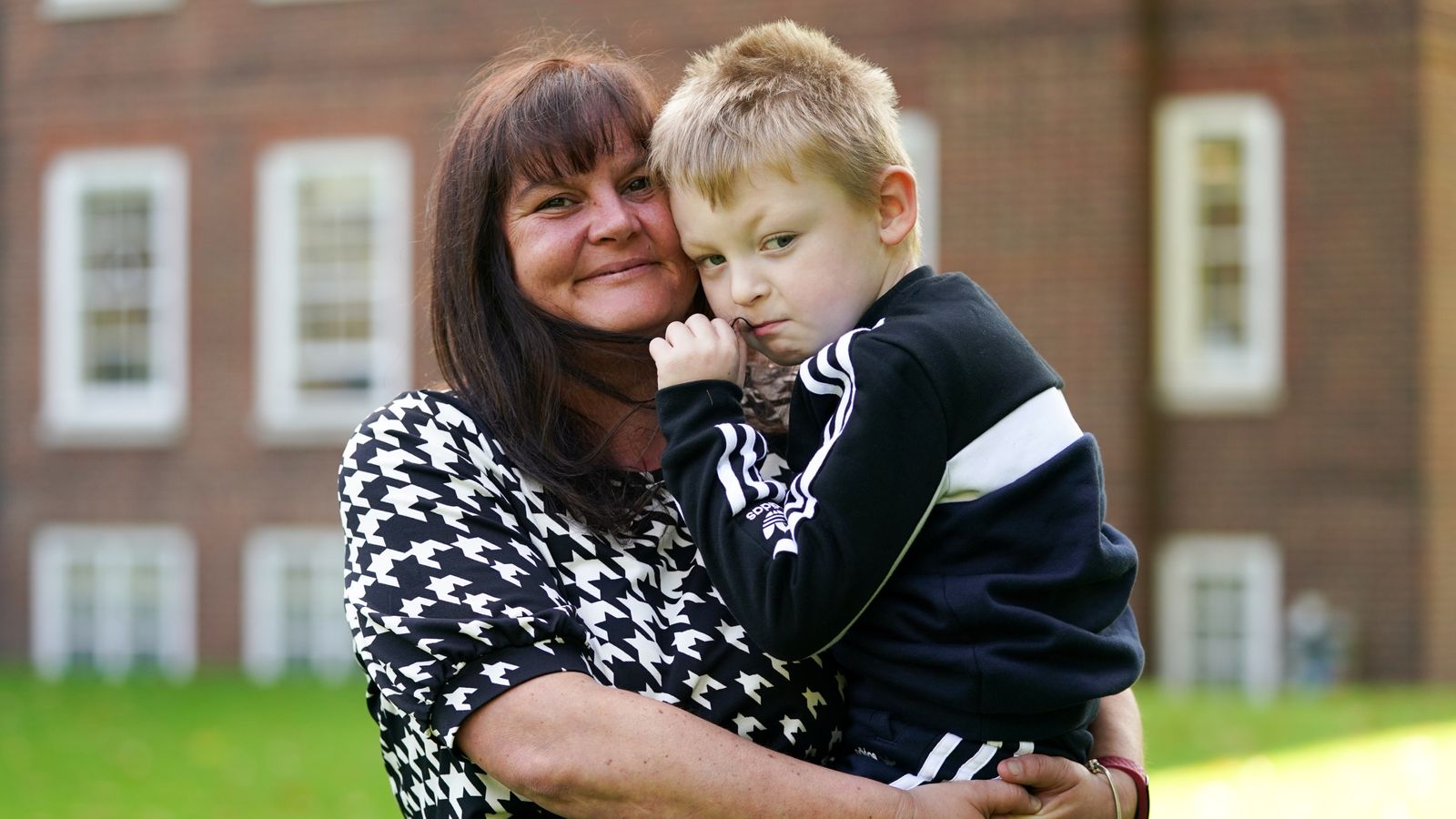The mother of a five-year-old boy with respiratory problems has won a High Court battle over the regulation of a landfill site accused of emitting noxious gases that are impacting her son’s life.
Rebecca Currie said “this decision today, it’s going to give Mathew and the community fresh air again. Not what we’ve been breathing in”, following what has been described as a “David and Goliath” legal case against the Environment Agency (EA).
Ms Currie feared she would be forced to move home if she lost the legal action.
Her lawyers argued there is a “public health emergency” in the vicinity of Walleys Quarry in Silverdale, Newcastle-under-Lyme, claiming hydrogen sulphide (H2S) emissions are affecting “hundreds and probably thousands of local people”.
Mathew Richards was born prematurely at 26 weeks with chronic lung disease and needed oxygen support for 19 months.
He and his mother live about 400 metres from the Staffordshire quarry, and his doctor told the court that H2S gas emitted from the site was preventing his recovery and lung development.
The child was at risk of developing chronic obstructive pulmonary disease in the future which would dramatically reduce his life expectancy, the medic added.
COVID-19: Vaccine booster programme begins as NHS starts giving third jabs
COVID news live: People most likely to have had long COVID revealed as booster campaign starts
Emma Raducanu reunited with parents as she arrives back in UK – five days after making tennis history
Ms Currie described fumes from the site as “a stomach-wrenching smell like rotten eggs”, and other residents said they suffered headaches and nosebleeds from the fumes.
The Environment Agency (EA) must now take more action to control emissions, the court ruled, despite not being in breach of its legal obligations.
In delivering the court’s 55-page judgement, Mr Justice Fordham said he was “satisfied that there is a direct effect on Mathew’s home, family life and private life from adverse effects of severe environmental pollution”.
The judge said the EA “must implement” Public Health England’s advice to reduce concentrations of hydrogen sulphide in the area to one part per billion, less than an eighth of the level that can be smelled, by January 2022.
Public Health England’s position is that “currently any risk to long-term health is likely to be small, but a risk cannot completely be excluded if exposure were to continue at current levels”.
The court heard the EA, which is monitoring the site’s air-quality levels, had taken “very substantial steps” at the landfill site and “continues to keep matters under review”.
Mathew’s solicitor Rebekah Carrier said: “This is truly a David and Goliath case where a mother has faced up to the government agency which is supposed to protect public health and yet has failed so badly to do so.”






















